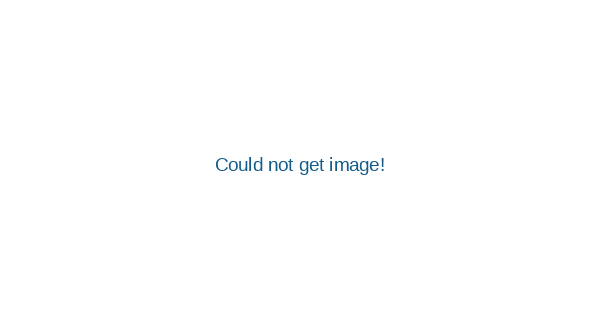You are here: Home | Featured | National News | News | S.Sudan: Media self-censorship, harassment, arrest and exile

Reporters Without Border states "pretext of combatting disinformation and hate speech has warranted countries to adopt and enforce laws with vague and draconian provisions.
Journalists and media houses in South Sudan continue to exercise self-censorship following a spate of harassments, arrests and expulsion in the last two years by the country’s authorities, Reporters Without Borders has said.
However, no journalist has been killed in South Sudan in the last 17 months, although the country still ranks low in the World Press Freedom Index.
This is the second year in a row for South Sudan to rank at number 138 out of 180 countries.
Its immediate neighbors; Ethiopia ranks at number 99, Kenya at 103, Uganda at 125, while the Central African Republic ranks at 132, and Sudan ranks at 159.
According to Reporters Without Borders, journalists in 21 African countries that have been ranked appear to be working in difficult, even critical, conditions.
It notes that the financial weakness of many media outlets makes them susceptible to political and financial influence that undermines their independence.
In South Sudan, the body says no journalist was killed in 2019 for the second year in a row.
“In a country ravaged by civil war since late 2013, the signing of a peace accord and Riek Machar’s finally achieved return as vice-president have been accompanied by a reduction in the fighting,” RWB states.
“But the situation remains precarious,” it warned.
Dubious times
At least ten journalists have died in South Sudan since 2014.
Reporters Without Borders argues that the years of fighting have weakened the media after being severally forced by the government not to cover issues linked to the conflict.
It says harassment, arbitrary detention, torture or execution-style murder is the price that journalists pay for not censoring themselves in South Sudan.
The body further states that close surveillance and intimidation are also part of the regime’s predatory methods and security agents often go directly to printing presses to censor content.
RWB was referring to the censoring and arrest of the Editor of Chief of Al-Mouqif’s newspaper in 2019.
It revealed that a radio station manager was told by the intelligence agency to submit his interviews for approval before broadcasting them.
“The media are very sparing in their reporting on important developments.”
In August 2015, President Salva Kiir purportedly issued verbal threats against journalists who “work against their country.”
Reporter Without Borders says this was followed three days later by the murder of South Sudanese reporter Peter Moi in Juba.
In August 2017, Christopher Allen, a US-British freelance war reporter was killed around Kaya while accompanying an attack on the town by the SPLA-IO.
But the exact circumstances of his death have never been clarified and no serious investigation has been carried out.
“Two soldiers were sentenced to life imprisonment in 2018 for the murder of a journalist, but impunity prevails in almost all cases,” RWB asserted.
Expulsions
In the last two years, RWB notes that pretext of combatting disinformation and hate speech has warranted many countries to adopt and enforce laws with vague and draconian provisions that can easily be used to gag journalists.
The Media Authority in South Sudan banned some foreign journalists and media from entering the country, while others were deported.
“Two journalists, one working for the AP and the other for France 24, were expelled in 2019, while the BBC’s local relays and a UN radio station were shut down in 2018,” RWB stated.
In October 2019, Media Authority revoked press credentials and expelled Sam Mednick, a freelance journalist for the Associated Press, a claim, the media authority denied.
A recent report by the UN Human Rights Commission outlined violations in South Sudan such as; continued denial of information, freedom of expression gross violations and abuses of human rights and related crimes, including sexual and gender-based violence and ethnic violence.
The report also highlighted continued harassment, arrests and detention of journalists in the country without trial citing the arrest of more than three journalists including the Editor in Chief of Al-Watan an Arabic daily newspaper.
Reporters Without Border reveals that several journalists have over the last two years sought refuge outside South Sudan due to lack of media freedoms.
“To escape the harassment, some journalists have preferred to flee the country or just close their publications,” it stated.
But Elijah Alier, the Managing Director of the Media Authority previously stressed that such reports are based on illusive assumptions in some sections and misinterpretation of the provisions in the laws.
The media authority has argued that reports often published on South Sudan’s media landscape “lack reliability of sources, the validity of information gathered, concrete evidence, consultation which did not give chance for the right of reply to the identified entities.”
Reporters Without Borders concludes that the only functioning public broadcaster such as the SSBC are still state-owned media which tends to be governmental mouthpieces or propaganda tools.
“[They] have a long way to go before they become truly independent public service media reflecting a wide range of opinion.”
Support Eye Radio, the first independent radio broadcaster of news, information & entertainment in South Sudan.
Make a monthly or a one off contribution.
Copyright 2024. All rights reserved. Eye Radio is a product of Eye Media Limited.